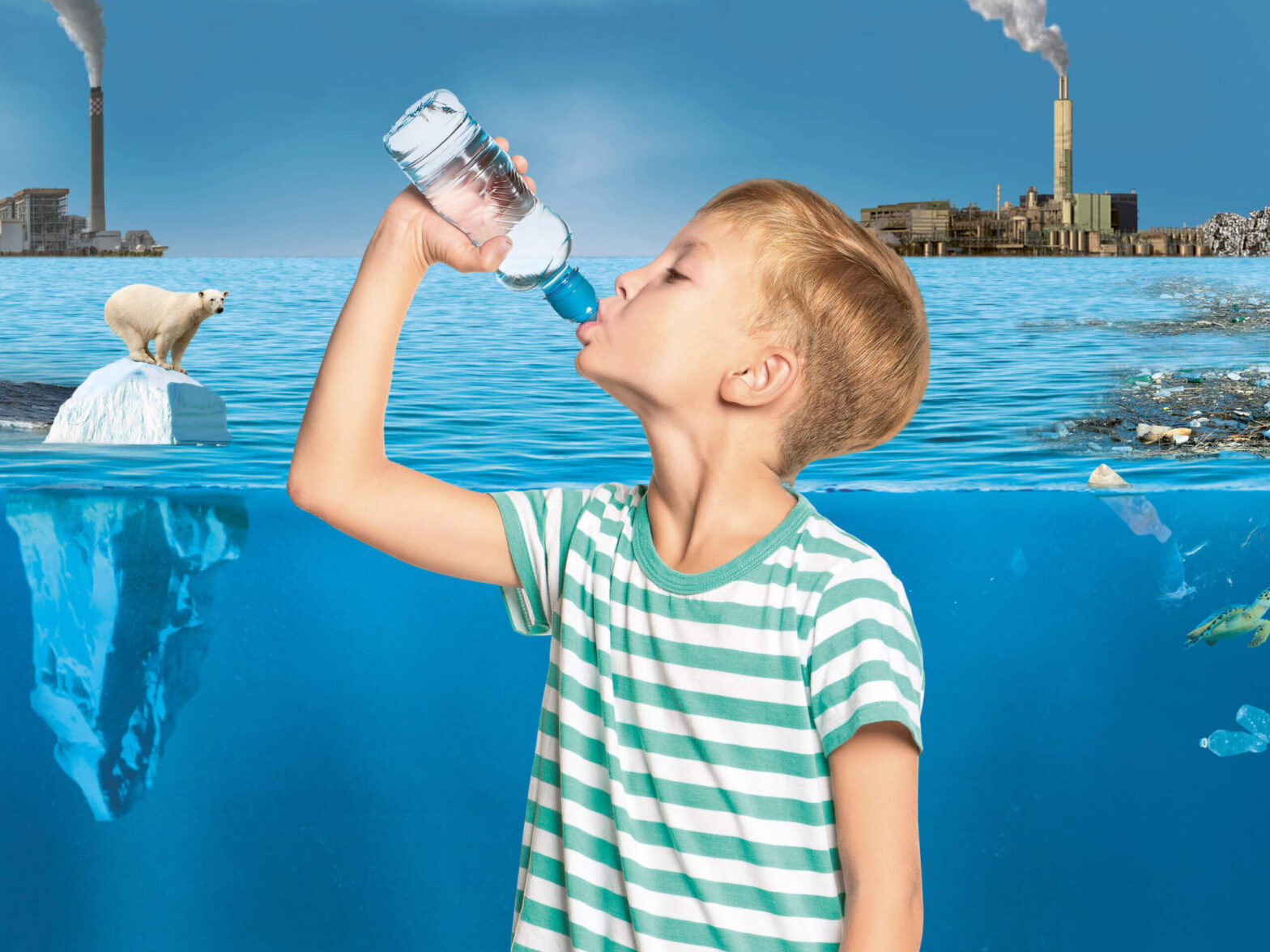Plastic: Harmful throughout entire Life Cycle
Plastic certainly has its uses. Yet disposable plastic is used far too much, is far too cheap, and is often produced only to be thrown away after just a few minutes. The real cost of this development is borne by the environment because plastic is harmful throughout its entire life cycle: From the search for the raw materials – oil and natural gas, to the production and use of plastic, all the way to its ultimate disposal.
If plastic were to be used exclusively for high quality and durable purposes, the world would look different today. But because the material is often only produced for single-use, it degenerates into waste in huge quantities. Why does the flood of plastic continue to increase, even though no one knows what to do with all the plastic waste?
Plan B of the petrochemical industry
Since the Paris Agreement has placed renewable energies in the spotlight, the pressure to avoid fossil fuels is increasing. The petrochemical industry now sees its growth potential in the production of plastics, which is based on oil and natural gas. In the USA alone, the plastics industry is planning to increase its production of virgin plastic by 30 percent in the next few years.
Oil and gas deposits are also increasingly being extracted offshore from the seabed, using deafening seismic airguns during exploration and exploitation causing ocean noise pollution. If marine animals are in the vicinity, they risk being injured or even killed. Furthermore, accidents occur time and again during extraction and transport of oil and gas. Oil spills pollute the marine ecosystem and threaten marine animals that are part of it for decades.
Plastic contributes to the climate crisis
Greenhouse gases that are emitted at each stage of the plastic lifecycle are enormous. It is estimated that by 2050, up to 13 percent of the global CO2 emissions* will be generated by the plastics industry. Their carbon dioxide emissions are already massive and are damaging marine life: From the Arctic, where the habitat of polar bears is melting away, to the tropics, where coral reefs are dying because of the increasing acidification of the surrounding water.
The ocean is drowning in waste
Around 9 million tonnes of plastic waste end up in the ocean every year. The plastic particles are washed into the most remote places by ocean currents and accumulate in ocean “gyres”. Floating plastic waste at the ocean surface makes up less than one per cent of the marine plastic pollution that is in the ocean. Most plastics sink to the depths of the seafloor and their concentration on the seabed is a thousand times higher than on the water´s surface. Plastic decomposes in saltwater over decades, releasing the cocktail of chemicals that it is made of.
This development is fatal for marine life. Every year, more than a million seabirds and hundreds of thousands of other marine animals are killed by plastic. They mistake plastic waste for food and starve to death with a stomach full of plastic. The smallest plastic particles, so-called microplastics, accumulate in the bodies of animals throughout the food chain and poison them little by little with their toxic additives. Countless marine animals also get entangled in fishing nets made of plastic.
Plastic Recycling Illusion
Plastic recycling is often hailed as the solution. However, this is often a false solution: On the one hand, the quality of plastic decreases when it is recycled. This is referred to as “downcycling”. In addition, there are countless types of plastic with different properties and ingredients that cannot possibly be collected separately. PET is an exception. But even in this case, there is no closed cycle: R-PET is only partially recycled into new bottles and new virgin plastic has to be added during its production. A certain amount of PET is processed into textile fibres, but these are not recyclable.
Worldwide, only 1 to 15 percent of all plastic ever produced and used has been recycled. This variance depends on the geographical region. We will not be able to recycle our way out of the plastic crisis.
A global strategy as a viable solution
So far, tackling the plastic problem has been largely based on voluntary measures. However, there is a lack of commitment to self-regulation on the part of industry and consumer brands. The responsibility is too often passed on to individual consumers. Their change of behaviour is important, but they alone will not be able to turn the tide.
The plastic pollution problem must be avoided at the source. This requires a global instrument. OceanCare is advocating for an international legally binding plastic treaty that regulates plastic throughout its entire life cycle.
* The CO2 budget quantifies how much carbon dioxide may be produced worldwide without causing the global temperature to rise further.
